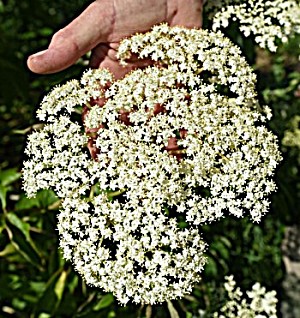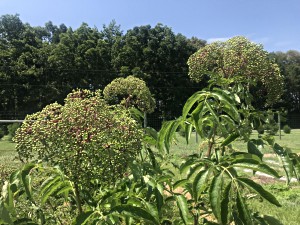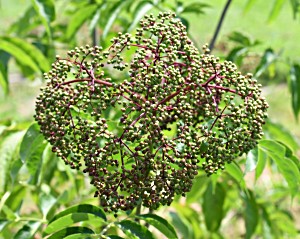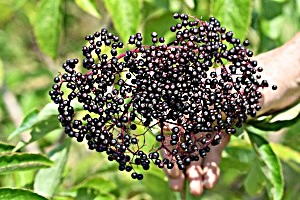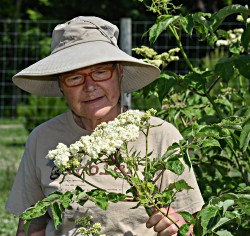
UMES Extension specialty herb consultant Henriette den Ouden is growing elderberries on the UMES Research and Education Farm on Stewart Neck Road near campus. This year is the first harvest from two varieties of elderberry bushes that were planted last year; the Wyldewood and the Bob Gordon.
“Although we have a nice harvest from the plants, we are going through a learning curve. The plants had a fungal infection, probably mites and Spotted Wing Drosophila. The Wyldewood seems more susceptible to disease, although the Bob Gordon was also slightly infected with the SWD,” den Ouden said. “We decided to let nature go its way since we do not want to use non-organic pesticides and tested the extent of the damage. This seems to have paid off for the Bob Gordon that had a large harvest of good quality berries. The Wyldewood harvest was less than expected.”
Den Ouden said that once harvested, the berries will be tested on acidity, sugar and antioxidant content to report back to growers. Based on this year’s harvest, she said, they will also formulate a pest management strategy to share, particularly for the Wyldewood variety.
“We will share this information with farmers and backyard elderberry growers,” she said. “This fall, we will prune the bushes to just above soil level to stimulate new growth. These cultivars flower and set berries on first year growth. Keep in mind that you do not do this with the native elderberry, as they just require thinning every year.”
Photos by Todd Dudek, agricultural communications photographer, tdudek@umes.edu.
